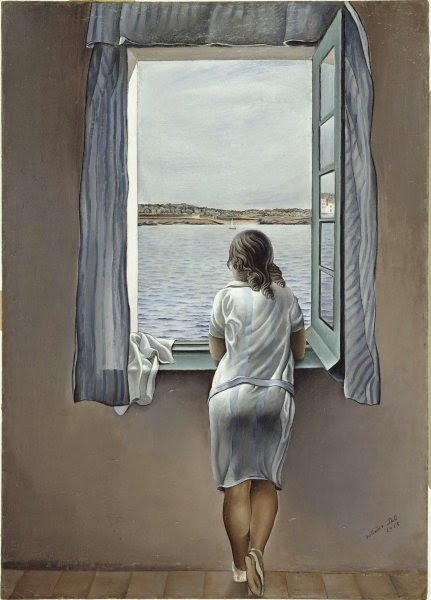On May 28, 2006, with the occasion of the pastoral visit that
Pope Benedict XVI made to Poland, where he had the opportunity to visit the
concentration camp complex of Auschwitz, built by Nazi Germany at the beginning
of the world War II, where was practiced the most heinous genocide known in the
history of mankind, with a balance of victims who, according to rough
estimates, shows the awful number of over six million Jews, four million soviet
prisoners of war and another few million more, still to determined, between polish, political
prisoners, freemasons, homosexuals, people with physical or mental limitations
and common criminals, as well as some 800,000 gypsies, the Pope himself
shuddered at the memory of the horror that is had been lived in those
facilities. So great was the emotional impact that felt the successor of St.
Peter, that even himself came to question the presence of God. In his speech at
the farewell of his apostolic trip, is important to emphasize, among other
things, the words devoted to this event: How many questions are imposed over us
in this place? Where was God in those days? Why was he silent? How could he
permit this endless slaughter, this triumph of evil? This words, spoken
directly by the highest authority of the Catholic Church, are, over all, an
invite to reflection for all us.
In our recent history, apart from the Holocaust that has been
practiced in numerous extermination camps created by the Nazis, are countless
the loss of life that has been produced
by external and violent causes: from the disasters caused by nature itself,
such as tsunamis, earthquakes, hurricanes, etc., until the most horrific acts
of barbarism provoked by people who denigrate the human condition. In each and
every one of these cases there is something that we believe has always missed
us: God's presence, his protective hand. Like the Pope at Auschwitz, all who
have lived some experienced, directly or indirectly, of any of these events, is
have asked himself, more or less, the same questions: Where was God? How anyone
who is considered infinitely just and kind may allow the death of so many
innocents, in such tragic conditions? What crime have they committed to deserve
such punishment? They are, in short, the same questions we ask when suffering
hits us directly, or when something terribly wrong or undesirable is happening
in our lives. These are questions that, by not to be within reach of human
understanding, of course, have no convincing answer in our earthly world. Our
conclusions only depend on what each one have as a benchmark of your own
existence, which, for believers unconditional, is faith in God and the
existence of another life; for all
others, just vicissitudes of fate.
A very succored argument that some use to justify inaction in
God, is that if He constantly have to intervene to prevent cruelty and violence
in our world, then we would be private of the power to act with our free will
and, with it, of the necessary freedom to lead our lives with the dignity that
belongs to us as creatures made in his image and likeness. Very weak argument,
no doubt, if we consider that natural disasters are totally alien to the human
will, and that many people are born without the minimum conditions necessary to
voluntarily choose their destiny.
In a particularly way, in my specific case, the many lived
experiences that I had, I have been moving to from positions more or less
steady in the faith, to others closer to agnostic philosophy. When I see images
like those of the recent irrational attack of the Boston Marathon, in which,
between the dead, there are a child of only eight years old, who, waiting
embrace his father when he had crossed the finish line, was physically
dismembered by an explosive device planted by two fanatics wretches terrorists,
one of them 19 years old, I feel how is crumbles many principles and I find it
very difficult to understand the alleged goodness of the designs of Divine
Providence. If we are truly the center of creation, how can we deserve so
little attention from our Creator?
Since we are born and we got on the train of life, each with their own luggage: loaded with potential capabilities, goods and privileges in some case, and vacuum in many others, what, in principal, already puts some people in first class and others in the caboose, until the end of life journey of our existence, in which the luck is distributed in form capriciously and arbitrarily, isn't seems easy to explain that there is one God for all, and, even less so, that He will be interested and worried by what happens in this world. Another issue very different will be with what, or with who, we can meet in our last station, when, finished our journey, we have to get off the train. That it will be another story, but this, I fear, may never will be known.
C. Díaz Fdez.
Since we are born and we got on the train of life, each with their own luggage: loaded with potential capabilities, goods and privileges in some case, and vacuum in many others, what, in principal, already puts some people in first class and others in the caboose, until the end of life journey of our existence, in which the luck is distributed in form capriciously and arbitrarily, isn't seems easy to explain that there is one God for all, and, even less so, that He will be interested and worried by what happens in this world. Another issue very different will be with what, or with who, we can meet in our last station, when, finished our journey, we have to get off the train. That it will be another story, but this, I fear, may never will be known.
C. Díaz Fdez.
April 2013

No hay comentarios:
Publicar un comentario
Agradezco tus comentarios y/o sugerencias